Contents
- I. Introduction
- II. Understanding Maine Coon Cats
- III. Common Hair Loss in Maine Coon Cats
- IV. Reasons for Hair Loss in Maine Coon Cats
- V. 5 Possible Causes of Hair Loss in Maine Coon Cats
- VI. Frequently Asked Questions about Hair Loss in Maine Coon Cats
- 1. Why is my Maine Coon cat losing hair?
- 2. Are Maine Coon cats more prone to hair loss compared to other breeds?
- 3. Can hair loss in Maine Coon cats be a sign of a serious health problem?
- 4. How can I prevent hair loss in my Maine Coon cat?
- 5. Can stress cause hair loss in Maine Coon cats?
- 6. Are there any natural remedies for hair loss in Maine Coon cats?
- 7. Can over-grooming cause hair loss in Maine Coon cats?
- 8. When should I be concerned about my Maine Coon cat’s hair loss?
- VII. Tips to Prevent Hair Loss in Maine Coon Cats
I. Introduction
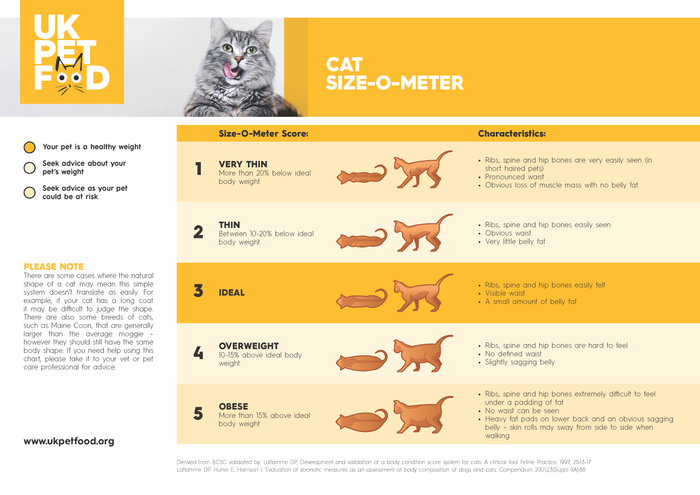
Are you noticing that your Maine Coon is losing hair? Hair loss in cats can be a common concern for pet owners, and it’s important to understand the underlying reasons behind it. While some hair loss in cats is normal, excessive or sudden hair loss may indicate an underlying health issue that requires attention. In this article, we will explore five possible reasons why your Maine Coon may be experiencing hair loss and ways to address the problem.
II. Understanding Maine Coon Cats
Maine Coon cats are known for their large size, striking appearance, and friendly nature. If you have a Maine Coon that is losing hair, it’s important to understand the potential reasons behind this issue. Here, we will delve into some key aspects of Maine Coon cats to help you gain a better understanding of their unique characteristics and potential hair loss causes.
Maine Coon Physical Features
Maine Coon cats are easily recognizable due to their distinctive physical features. They are one of the largest domesticated cat breeds, known for their muscular build and long, bushy tails. Their fur is dense and water-resistant, allowing them to adapt well to colder climates. Additionally, Maine Coons have tufted ears, large eyes, and a variety of coat colors and patterns.
Coat Care and Grooming
One of the essential aspects of caring for a Maine Coon cat is proper grooming. Their thick coats require regular brushing to prevent matting and reduce shedding. Regular grooming sessions also help to distribute natural oils throughout their fur, keeping it healthy and shiny. Neglecting grooming can lead to hair loss and skin issues in Maine Coons.
Potential Health Issues
While hair loss in Maine Coon cats can be a result of various factors, it’s essential to consider potential health issues. Some common health conditions that may lead to hair loss include allergies, fungal or bacterial infections, hormonal imbalances, or thyroid problems. If your Maine Coon is experiencing significant hair loss, it is advisable to consult with a veterinarian to rule out any underlying health concerns.
Nutrition and Diet
Proper nutrition plays a key role in maintaining a Maine Coon cat’s overall health and coat condition. These cats require a balanced diet that includes high-quality protein, essential fatty acids, and appropriate levels of vitamins and minerals. Insufficient nutrition can lead to poor coat quality and excessive shedding.
Environmental Factors
External factors can also contribute to hair loss in Maine Coon cats. Changes in the environment, such as exposure to excessive heat or cold, can affect their coat health. Stress, anxiety, or a sudden change in routine may also lead to hair loss in these sensitive cats.
Understanding Maine Coon cats and their unique characteristics is crucial when dealing with hair loss issues. By considering factors such as physical features, grooming routines, potential health concerns, nutrition, and environmental factors, you can better address the underlying causes and help your Maine Coon regain a healthy coat. Remember, if the hair loss persists or you notice other concerning symptoms, it is always best to seek professional veterinary advice.
III. Common Hair Loss in Maine Coon Cats

Maine Coon cats are known for their beautiful, luxurious coats. However, if you notice that your Maine Coon is losing hair, it can be quite concerning. Hair loss in these majestic felines can occur due to various reasons, but here are some common causes that you should be aware of:
1. Allergies
Maine Coon cats can develop allergies, just like humans. These allergies can be triggered by different factors, such as food, environmental allergens, or even certain grooming products. Allergic reactions can lead to hair loss, itching, and skin irritation in your furry friend. If you suspect allergies, consult with your veterinarian to identify the specific allergen and find the appropriate treatment.
2. Hormonal Imbalances
Hormonal imbalances can also be a culprit behind hair loss in Maine Coon cats. Conditions like hypothyroidism or hyperthyroidism can disrupt the normal functioning of the endocrine system, leading to excessive shedding and hair loss. Your vet can run blood tests to check your cat’s hormone levels and recommend the necessary treatment.
3. Parasites
Parasites, such as fleas, ticks, or mites, can infest your Maine Coon’s coat and cause hair loss. These tiny creatures irritate the skin, leading to scratching and biting, which ultimately results in hair loss. Regular grooming and using veterinarian-approved parasite prevention products can help prevent infestations and the associated hair loss.
4. Stress
Maine Coon cats are sensitive creatures, and stress can take a toll on their overall health, including their coat condition. Major changes in their environment, introduction of new pets, or even loud noises can cause stress in your feline companion. If your Maine Coon is experiencing hair loss alongside behavioral changes or other signs of stress, try to identify and eliminate the stressors to restore their coat’s health.
5. Nutritional Deficiencies
A balanced diet is crucial for maintaining a healthy coat in Maine Coon cats. Deficiencies in certain essential nutrients, such as fatty acids, vitamins, or minerals, can result in poor coat quality and hair loss. Ensure that your cat’s diet is complete and well-balanced, and consider incorporating supplements recommended by your vet to support their coat health.
IV. Reasons for Hair Loss in Maine Coon Cats
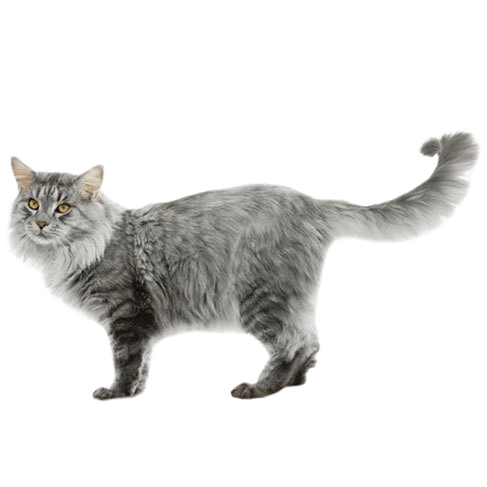
Hair loss in Maine Coon cats can be a cause for concern for many pet owners. While it is normal for cats to shed some hair, excessive hair loss could indicate an underlying issue. Here are some reasons why your Maine Coon may be losing hair:
1. Allergies
Maine Coon cats, like other breeds, can develop allergies to certain foods, environmental factors, or even grooming products. These allergies can cause itching and irritation, leading to excessive scratching and hair loss. If you suspect your cat has allergies, consult with a veterinarian who can recommend appropriate allergy testing and treatment options.
2. Parasites
External parasites, such as fleas and mites, can also contribute to hair loss in Maine Coon cats. These parasites not only cause itching and irritation but can also lead to secondary skin infections. Regular flea prevention and ensuring your cat’s living environment is free from mites can help prevent hair loss caused by parasites.
3. Hormonal Imbalances
Hormonal imbalances, such as hypothyroidism or hyperthyroidism, can affect a Maine Coon cat’s coat. Hypothyroidism, an underactive thyroid, can cause dry, brittle hair and excessive shedding. Hyperthyroidism, an overactive thyroid, may lead to thinning hair and a dull coat. If you notice changes in your cat’s coat along with other symptoms like weight loss or increased appetite, consult a veterinarian for proper diagnosis and treatment.
4. Stress or Anxiety
Maine Coon cats, known for their friendly and sociable nature, can still experience stress or anxiety in certain situations. This can range from changes in their environment, such as moving or the introduction of a new pet, to loud noises or separation anxiety. Stress and anxiety can manifest in different ways, including excessive shedding and hair loss. Creating a calm and secure environment for your cat, along with the use of pheromone sprays or diffusers, can help alleviate stress-related hair loss.
5. Skin Infections or Diseases
Various skin infections or diseases can affect a Maine Coon cat’s coat and cause hair loss. Fungal infections like ringworm, bacterial infections, or autoimmune disorders can all contribute to hair loss. If you notice bald patches, redness, or sores on your cat’s skin, it’s essential to consult a veterinarian for proper diagnosis and treatment.
Remember, while these are common reasons for hair loss in Maine Coon cats, it’s always best to consult with a veterinarian for an accurate diagnosis and appropriate treatment. Regular grooming, a healthy diet, and a stress-free environment can also help maintain your cat’s coat and overall well-being.
V. 5 Possible Causes of Hair Loss in Maine Coon Cats
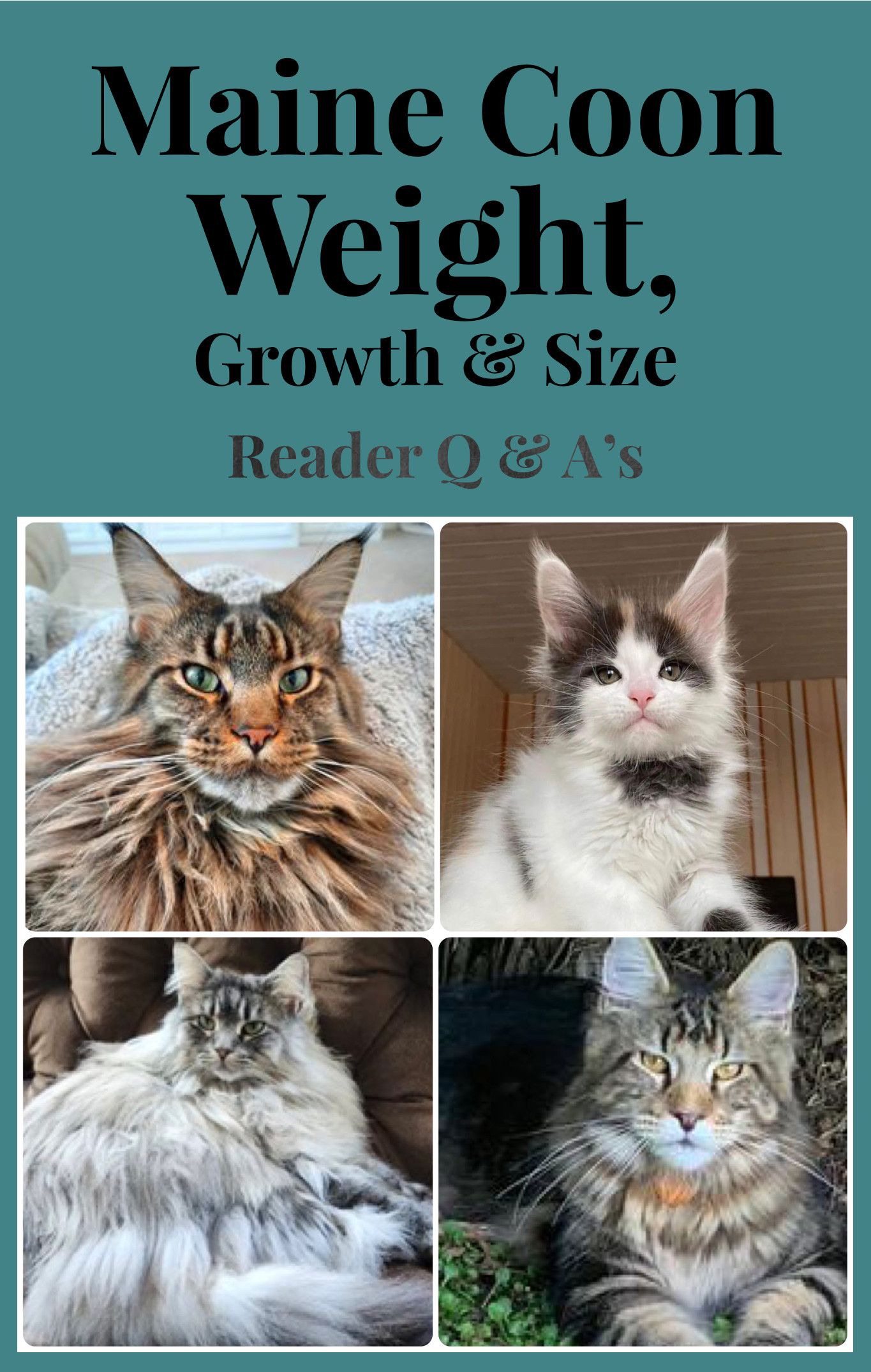
Hair loss in Maine Coon cats can be a concerning issue for many pet owners. While it is normal for cats to shed some hair, excessive hair loss can indicate an underlying problem. Here are five possible causes of hair loss in Maine Coon cats:
1. Allergies
Maine Coon cats can develop allergies to certain foods, environmental factors, or even grooming products. These allergies can cause itching and hair loss. Common allergens include certain proteins, pollen, dust mites, and fleas. If your Maine Coon is experiencing hair loss accompanied by excessive scratching or skin irritation, consult your veterinarian to identify the allergen and develop a treatment plan.
2. Hormonal Imbalances
Hormonal imbalances, such as hypothyroidism or hyperthyroidism, can lead to hair loss in Maine Coon cats. These imbalances disrupt the normal hair growth cycle, resulting in excessive shedding. Other symptoms may include weight gain or loss, changes in appetite, and lethargy. A thorough examination by a veterinarian, including blood tests, can help diagnose and manage hormonal imbalances.
3. Parasites
Parasites like fleas, ticks, or mites can cause hair loss in Maine Coon cats. These parasites irritate the skin, leading to scratching, biting, and hair loss. Regular flea and tick prevention, along with routine grooming, can help prevent infestations. If you suspect your cat has parasites, consult your veterinarian for appropriate treatment.
4. Stress or Anxiety
Maine Coon cats are sensitive creatures and can experience stress or anxiety. Factors such as changes in their environment, the introduction of new pets, or even loud noises can trigger stress responses, leading to hair loss. Creating a calm and secure environment and providing enrichment activities can help alleviate stress-related hair loss in Maine Coon cats.
5. Nutritional Deficiencies
Inadequate nutrition can also contribute to hair loss in Maine Coon cats. A diet lacking essential nutrients, especially omega-3 fatty acids and vitamins, can result in brittle and dry hair, leading to excessive shedding. Ensure your cat’s diet is well-balanced and includes high-quality cat food that meets their nutritional needs.
Remember, if you notice excessive hair loss in your Maine Coon cat, it is essential to consult a veterinarian to determine the underlying cause and develop an appropriate treatment plan. Early intervention can help prevent further hair loss and promote a healthy coat for your beloved feline friend.
VI. Frequently Asked Questions about Hair Loss in Maine Coon Cats
Here are some commonly asked questions about hair loss in Maine Coon cats:
1. Why is my Maine Coon cat losing hair?
Maine Coon cats can experience hair loss due to several reasons. It could be due to allergies, skin infections, hormonal imbalances, stress, or underlying health conditions. If you notice excessive hair loss, it’s important to consult a veterinarian to determine the underlying cause.
2. Are Maine Coon cats more prone to hair loss compared to other breeds?
Maine Coon cats have a thick, luxurious coat, but they can still experience hair loss like any other cat breed. However, their long fur may make it more noticeable when they shed or lose hair. Regular grooming and proper nutrition can help minimize hair loss in Maine Coon cats.
3. Can hair loss in Maine Coon cats be a sign of a serious health problem?
In some cases, hair loss can be a symptom of an underlying health issue. It’s important to monitor your Maine Coon cat’s overall health and look for other signs such as changes in appetite, behavior, or skin condition. If you have concerns, consult a veterinarian for a thorough examination.
4. How can I prevent hair loss in my Maine Coon cat?
To minimize hair loss in Maine Coon cats, ensure they have a balanced diet that includes essential nutrients for healthy skin and coat. Regular grooming, including brushing and bathing, can also help remove loose hair and prevent matting. Avoid exposing your cat to potential allergens or stressful situations.
5. Can stress cause hair loss in Maine Coon cats?
Yes, stress can contribute to hair loss in Maine Coon cats. Cats are sensitive animals, and changes in their environment or routine can lead to stress. It’s important to provide a calm and stable environment for your Maine Coon cat, and if necessary, consult a veterinarian for guidance on reducing stress levels.
6. Are there any natural remedies for hair loss in Maine Coon cats?
While there are various natural remedies suggested for hair loss in cats, it’s important to consult a veterinarian before trying any. They can provide appropriate recommendations based on your cat’s specific condition and determine if any underlying health issues need to be addressed.
7. Can over-grooming cause hair loss in Maine Coon cats?
Yes, excessive grooming can lead to hair loss in Maine Coon cats. Some cats may develop a compulsive grooming behavior, resulting in bald patches or thinning hair. If you suspect over-grooming as the cause of hair loss, consult a veterinarian for advice on managing this behavior and promoting healthy skin and coat.
8. When should I be concerned about my Maine Coon cat’s hair loss?
If you notice a significant increase in hair loss, bald patches, or accompanying symptoms such as itching, inflammation, or changes in behavior, it’s time to consult a veterinarian. They will be able to evaluate your cat’s condition, perform necessary tests, and provide appropriate treatment or management options.
Remember, understanding the underlying cause of hair loss in Maine Coon cats is crucial for effective management and ensuring your feline companion’s overall health and well-being. Always consult a veterinarian for any concerns or questions related to your cat’s hair loss.
VII. Tips to Prevent Hair Loss in Maine Coon Cats
Maine Coon cats are known for their beautiful, long fur, but sometimes they can experience hair loss. If you notice your Maine Coon shedding excessively or developing bald patches, it’s essential to take action to prevent further hair loss. Here are some tips to help keep your Maine Coon’s coat healthy and minimize hair loss:
1. Regular Grooming
Grooming plays a crucial role in maintaining your Maine Coon’s fur. Brush your cat’s coat at least once a week to remove loose hair and prevent matting. Invest in a high-quality brush designed for long-haired cats to effectively reach the undercoat. Regular grooming also helps distribute natural oils, keeping the fur shiny and reducing the chances of hair loss.
2. Balanced Diet
A well-balanced diet is vital for healthy hair growth in Maine Coon cats. Ensure your cat’s diet includes high-quality protein, essential fatty acids, vitamins, and minerals. Consult your veterinarian to determine the best diet for your Maine Coon’s specific needs. Additionally, providing access to fresh water at all times helps maintain hydration, which is crucial for healthy skin and fur.
3. Stress Reduction
Stress can contribute to hair loss in Maine Coon cats. Create a calm and peaceful environment for your cat by providing hiding spots, vertical spaces, and plenty of interactive toys. Maintain a consistent routine to minimize changes that may cause stress. If you notice signs of anxiety or excessive grooming, consult your veterinarian for guidance on stress reduction techniques.
4. Regular Vet Check-ups
Regular veterinary check-ups are essential for identifying and addressing any underlying health issues that may contribute to hair loss. Your vet can perform tests to rule out medical conditions such as allergies, hormonal imbalances, or skin infections. Early detection and treatment can prevent further hair loss and promote overall well-being.
5. Avoid Over-Bathing
While keeping your Maine Coon clean is important, over-bathing can strip their fur of natural oils, leading to dryness and hair loss. Limit bathing to when necessary or as recommended by your veterinarian. Use gentle, cat-specific shampoos and conditioners to maintain the coat’s health without causing excessive drying or irritation.
By following these tips, you can help prevent hair loss in your Maine Coon cat and keep their coat looking lustrous and beautiful. Remember to observe your cat’s behavior and consult your veterinarian if you have any concerns about their hair loss or overall health.
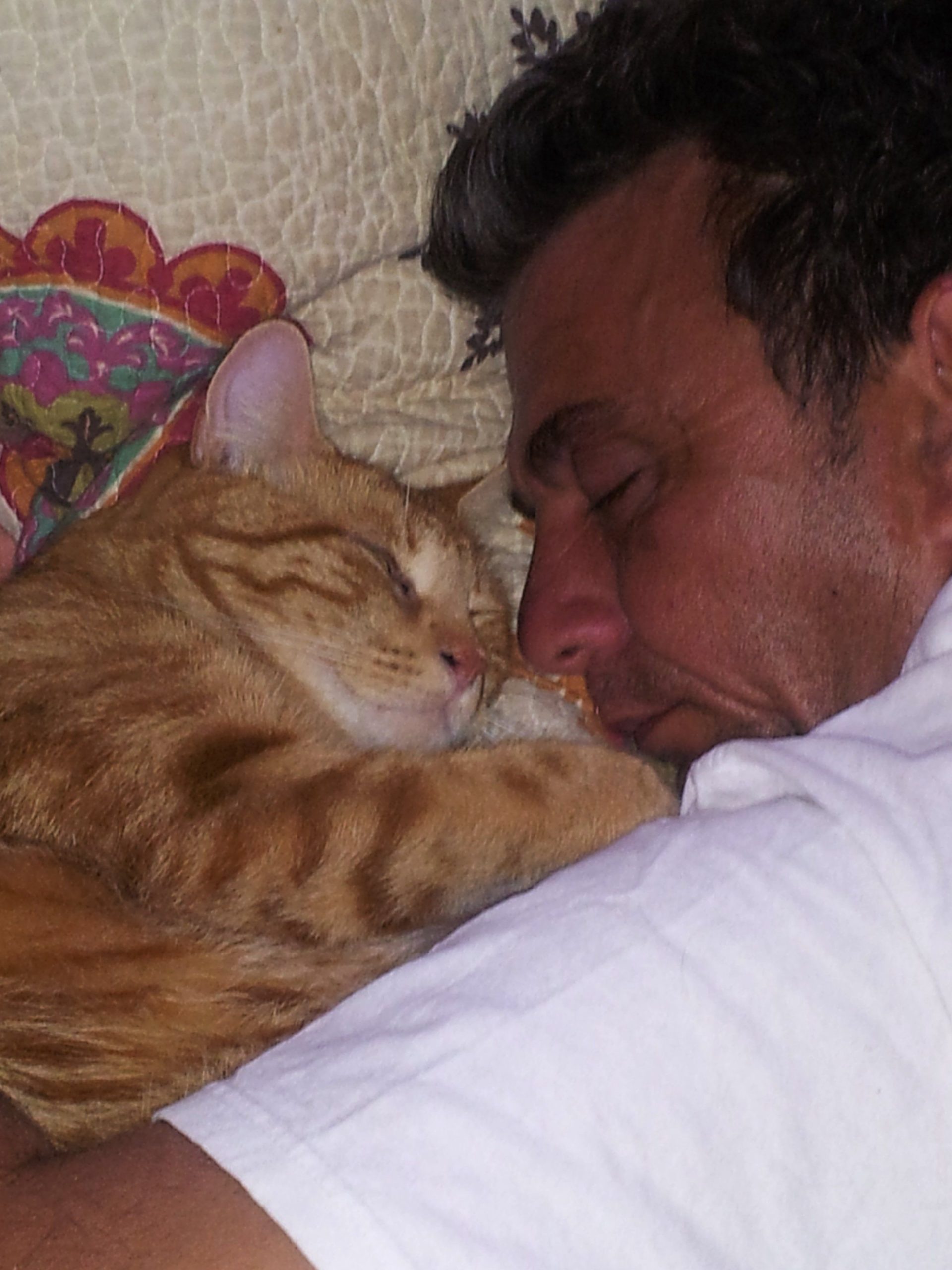
Jackson is an accomplished content writer with a flair for captivating storytelling. With a Bachelor’s degree in English Literature from the prestigious University of California, Berkeley, Hunter’s educational background has honed his writing skills to perfection. His love for felines is evident in his extensive knowledge of cat behavior and care, making him an expert in the field. Hunter’s passion for cats has led him to contribute insightful articles to various online platforms, providing valuable information and tips to cat owners worldwide. With his exceptional writing abilities and deep understanding of cats, Hunter continues to create engaging content that resonates with readers and leaves a lasting impact.
